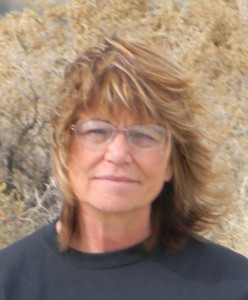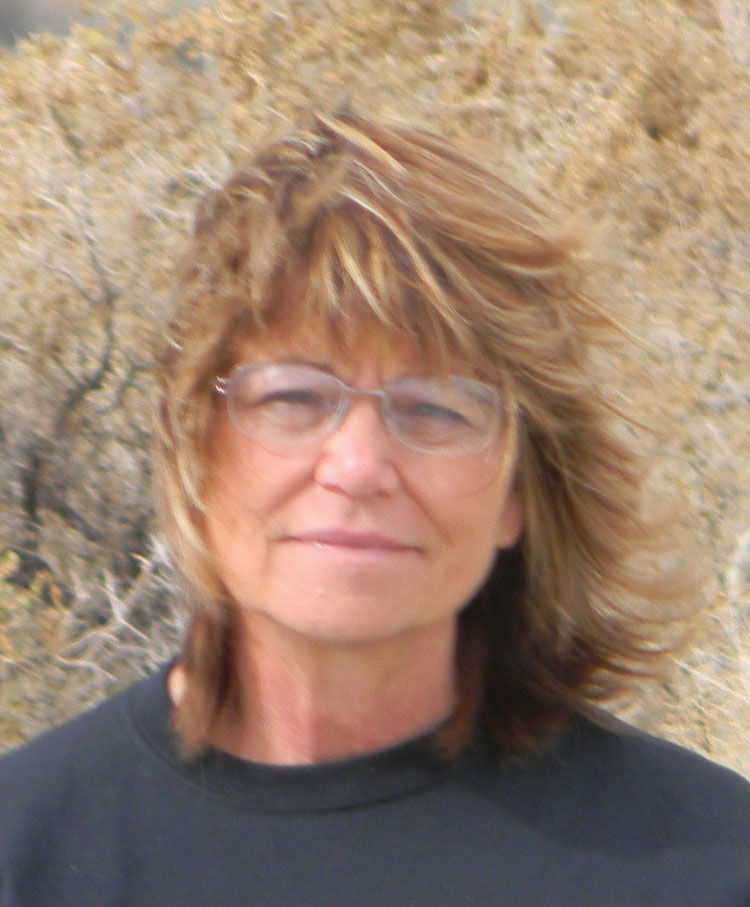by Michele Colopy
The USDA recently released a report on the impact of women in agriculture. Thirty-one percent of all farmers are women, or 969,672 women farmers who own 301,386,860 acres contributing $12.9 Billion to the agricultural economy.1 In a rough survey of local, state, and national beekeeping groups women represented less than a third of leadership positions (officers and board members):
• national/regional beekeeping/pollinator groups: 30.4% are women
• state beekeeping associations: 30% are women
• local beekeeping clubs: 42% are women
While, those numbers correlate with the statistics of women farmers, local beekeeping associations are beginning to include more women in leadership roles. However, still too often women in beekeeping are relegated to “refreshment wench,” or “secretary” positions in organizations. (This outdated practice of ignoring women as leaders in groups exists in other associations as well, not just beekeeping.) A few beekeeping clubs still retain the very antiquated and separate “auxiliaries” for women in beekeeping. The “auxiliaries” focus on auctions, entertainment, and the “salves, soaps, and cooking.” While “auxiliaries” still exist in a few fraternal and benevolent societies, it can be viewed as segregating membership, identifying some members as being “less than” other members, and restricting membership to a select few based on gender, race, age, experience, etc.2 Members of some auxiliaries do have the opportunity to become full members when they reach a certain age, or “degree level.” When an auxiliary is designated by gender however, limits have been defined.
What do women in beekeeping experience as beekeepers?
I asked 12 women beekeepers across the U.S. about their experiences as a woman in beekeeping. Their personal experiences ranged from positive to frustrating. For example, the young women who participate in the Honey Queen program are and/or become articulate and charismatic spokespersons for honey and beekeeping. Whereas, a male beekeeping association leader stated he would run for Treasurer of his bee club, and have his sister do all of the work. Never thinking his sister could run for Treasurer, since she seems to be the one with the skills to do the job!
Women in beekeeping are supporting each other through mentoring, and encouraging women beekeepers to run for office in their local and state beekeeping groups. All of the women interviewed stated they ran for leadership positions in their beekeeping association (local, state and national level) because someone encouraged them to do so. Yet, in some associations, only certain positions are “open” to women, as president and vice-president “are always men,” and that if a “woman held an officer position it would not be held for long.”
I submitted questions to these 12 women beekeepers across the U.S. Ten responded, generously sharing their experiences. The women beekeepers comprised an average of 18 years of beekeeping, managing an average of 94 hives. These beekeepers rent their hives for crop pollination, breed queens, sell nucs, mentor other beekeepers, and are leaders in their local, state, regional, and national beekeeping groups. Three women, however felt a need to remain anonymous in order to contribute to this article due to their positions at the state and national level. I want to thank all of the contributors including Terry Lieberman-Smith, V.P. of Ohio State Beekeepers Assn., Debbie Gilmore, President of Mason Valley Beekeepers, Debbie Seib, Treasurer of Indiana Beekeepers’ Assn., Beth Conrey, President of Colorado State Beekeepers, and WAS 2015 President, Eli Kalke, Fieldstone Farms, Caroline Adams, 2013 American Honey Queen, and Erin MacGregor-Forbes (the first woman Chairperson of EAS) for their time and insight for this article, and for their work on behalf of beekeeping.
Women beekeepers are similar to other beekeepers: they raise Italian, Carniolan, Russian, and survivor stock honey bees. They manage five to more than three hundred hives, by themselves or with their spouse. Debbie Seib became interested in beekeeping when she met her husband 29 years ago. Erin MacGregor-Forbes “stole her husband’s hobby” of beekeeping. Beth Conrey became interested in beekeeping after reading articles written by beekeeper Tom Theobald in her hometown newspaper. For Debbie Gilmore beekeeping was part of the old family business. “Beekeeping has been in my family since 1918 when my Great Grandfather, who was a beekeeper, came to Nevada. The business was in my family until the 1970s when they sold their bees. My husband, Andy Joyner, and I decided to get a colony of bees in 2007 to help with pollination of our and our neighbor’s gardens.” For Terry Lieberman-Smith she chose beekeeping “because unlike other agriculture “herds,” they don’t need 24/7 care.”
These experienced beekeepers, who happen to also be women, expressed their thoughts about women leaders in beekeeping, the Honey Queen program, issues affecting the industry, and the challenges facing beekeeping in the next five years. All of the women interviewed have served as Honey Booth Chairperson, Vice President, Finance Committee member, State or Regional Association President, newsletter editor, secretary, and Board members. These women beekeepers were asked to join their respective bee clubs, or simply exclaimed at a meeting, “If you need my help…” As Terry stated, “if you have the vision and drive, you can help make the club a powerful influence in your area, and make a positive difference for beekeepers. If you just plan on keeping the chair warm, don’t bother.” Eli Kalke just wanted to support others who were working to move the association forward. She “wanted to help and make a difference, encouraging others to participate, and to give new energy and ideas.” In that same vein, a woman beekeeper stated “I saw more could be accomplished and it could be done more efficiently, so I chose to run for the Board.” Overall, current and prospective women beekeeping leaders were recognized for their energy, talent, and skill they could bring to their club and were asked to run for office, or simply jumped right in in order to make a change for the better.
All of these women give back to their bee clubs and their community through mentoring, club and conference presentations, and educational programs to school groups, garden clubs, and similar. They participate in their County and State Fairs through the association honey booth, and honey competitions. Terry did not “like how the jelly judge evaluated the honey categories in the county fair,” so she worked with the Ohio State Beekeeping Association to have a Honey Judging Class. She is now the honey judge for a few counties. Another beekeeper stated, “I have openly received compliments from more senior beekeepers, and retired state apiarists, expressing their happiness seeing a dedicated fulltime female beekeeper. On the flip side I have not always experienced or been shown the same respect as my male counterparts.” For a number of the women leaders, they have been instrumental at bringing the organizations into the digital age creating Facebook pages and websites, writing club newsletters, and generally utilizing electronic media to improve the communication among the club membership. Caroline Adams sums it up nicely, “I highly encourage clubs to encourage such involvement and to be open to their members’ perspectives. As a young woman, it was a great honor to me to be active in my association’s leadership and to collaborate with other leaders from varying demographics and backgrounds to better serve the needs of our club.”
As beekeepers, what have been your biggest concerns/issues with your own honey bees?
“As with everyone, mites have been a big concern. I think it does not matter if you have one colony or thousands, trying to keep bees healthy and alive is an ongoing concern. This year, Nevada has been in an extreme drought which has had a major effect on foraging for our bees. Timely rains in July helped with the nectar flow and honey production. I have also had to deal with bears. Three years in a row, we had extensive bear damage even with an electric fence. Bears are an increasing concern in our area and effective bear fencing is expensive.” stated Debbie Gilmore.
Other issues of concern included migratory beekeepers bringing undesired genetics into an area, farming practices and crop rotation, the spraying of pesticides, especially herbicides reducing forage, and concerns over “thieves, vandals, and bears.” For these leaders in the bee industry, another concern was time. “I’m so busy helping others, or working on two local clubs and the state club, that many times I don’t have enough quality time to visit my ‘girls.’” Only three of the women beekeepers rent their hives for crop pollination. The biggest concern was the exposure risk to pests and pathogens of mixing their bees with so many bees from across the country. The stress of pesticide exposure upon the beekeeper and the honey bees made crop pollination nerve-wracking. “Maintaining healthy bees within close proximity of other beekeepers, and “do nothing beekeepers” is a problem,” exclaimed a woman beekeeper who does crop pollination.
All of the beekeepers were asked about the American Honey Queen program (AHQ), and a former Honey Queen was interviewed for this article. Comments varied, but in all, the young women in the program represent beekeeping well, benefit greatly from the opportunity to hone public speaking skills, and put a “face” on beekeeping. However, like “women’s auxiliaries,” the program can appear dated and sexist to women beekeepers, and limiting to young men who could benefit from the opportunities for education and public speaking through the program.
“The opportunities presented to these young women are obvious through their public speaking. However, beekeeping is more than cooking with honey. To me it shows the bee industry is stuck in the 1950s, with an antiquated view of the opportunities available to a beekeeper’s daughter.” stated a national beekeeper. The program is a bit of a ‘throwback.’ These girls are not, for example, allowed to wear pants. Ridiculous in 2015, I say. It just needs to focus on its core mission. Gender does not really make a difference if the mission is what matters. Concerning funding the state queen program one beekeeper stated, “My only disappointment is during the annual conference live auction, it seems that each year fewer people understand the objective that all proceeds contribute enormously towards the funding of the queen program. Instead bidders are looking for a bargain by underbidding.” “These young women are incredibly articulate and serve as excellent ambassadors for honey and beekeeping.” “I think both young men and women are needed to be spokespeople for the industry, and are needed to inspire young people.” “I believe the ‘crown and sash’ indicate and represent a tradition that may need to evolve into something different for our ‘Youth Honey Advocates’. I think the outreach is valuable, but the context is dated and sexist. I would like to see this program re-vamped to be open to young men and women, and for the “beauty pageant” aspects to be downplayed or eliminated, and the “public speaker/advocate” aspects amplified.”
The value of the Honey Queen program is evident from those who interact with these young women, and from their personal experience in the program. Caroline Adams, 2013 American Honey Queen was “amazed at the support I received, and the positive impact it had on my work as a spokesperson for the industry. Because I was invested as a young beekeeper, I am eager to continue encouraging and supporting beekeepers who are striving to make a difference in our industry. The Honey Queen/Princess program is a phenomenal program. By striving to involve young people in the industry, the program further evolves the face of beekeeping, leading to farther reaching education, and encouraging involvement across demographics.
I believe that all beekeepers (including young men) should be active in educational outreach and advocacy. As beekeepers, the well-being of the industry affects each of us on a personal level, and we all have a responsibility to invest in our future.”
While, the Honey Queen program is viewed differently by women of varying ages and experience, Caroline Adams expresses well the benefits of the program and her experiences. Caroline participated in the AHQ program because she “knew the Queen program would provide me with an extraordinary opportunity to give back to the industry by raising awareness about the vital importance of honey bees and beekeepers’ roles. “Serving as an official spokesperson for the industry greatly improved my communication abilities across cultures, landing me unique job opportunities based on the experiences I had serving the industry. I have acquired the skills necessary to serve in the professional business world, and have since implemented them in my career, board positions, and continued community outreach.”
While Caroline does not advocate any change in the AHQ program to adjust it toward a young scholars program and make it open to young men as well, she does state, “There are countless needs in the industry that must be met by passionate beekeepers – there are fabulous opportunities for young men, and I cannot encourage them enough to give back to the industry, and further promote beekeeping!”
What do you see as the challenges to beekeeping in the next five years?
Eli Kalke: Sufficient forage. Encourage more land owners to provide more forage/habitat by converting grassland to wildflowers. Maintaining the momentum about the bees’ plight and how the public can help do their part. Dealing with Varroa mites, pesticides, and beekeepers who still believe it is possible to keep bees healthy by letting them fend for themselves are challenges I see in the next five years.”
Beth Conrey: The greatest challenge facing beekeepers is the beekeepers themselves. Our inability to work together across all aspects of the industry has made it nearly impossible for us to accomplish anything in the Federal and State arenas. From two national beekeeping organizations to a myriad of local organizations representing factions within the industry, we are a difficult bunch! How do we fix it? My suggestion is to focus on the one thing we can all agree on – healthy bees. Anything being considered is held against this standard: does it make bees healthier? If it does, it should be supported. If not, then move on. Ironically, I also view this diversity as our greatest asset. I feel that education and outreach are critical missions of the beekeeping industry, and that we need to rally more folks to participate in these sorts of activities. We call upon far too few of our numbers to make the case for bees and beekeeping, and greater participation would go a long way.
Terry Lieberman-Smith: Keeping our bees alive. If we can’t keep our bees alive without drastic measures (chemicals, limited gene pool, “snake oil”), then we won’t keep the beekeepers long-term. We need better training on apiary management, including increased training on monitoring techniques and management options related to pests and diseases. This training needs to filter across the state from the drawing board to every local association. We also need to monitor and have input to any legislation coming down the pike… such as food handling issues or other business rules that will impact beekeepers and their small businesses.
Regional beekeeping leader: Keeping the current trends in beekeeping. We need to continue to assist backyard beekeepers to keep their bees alive from year to year, get more women involved, and showing them they are capable of keeping bees. I remember I had to prove I could keep bees, and keep them alive from year to year. I had to prove I could do the heavy lifting, and fit into the beekeeping world.
National beekeeping leader: The practice of “we have always done it like this,” is strangling the industry, and turning off beekeepers with new ideas, and energy. Old grudges get in the way of progress. Beekeeping needs to move forward. Beekeepers waste time wishing to return to 1940s beekeeping: that world is gone. The world of our bees has changed, and beekeepers must change in order to help their bees. Women need to be respected for their skills and experience in beekeeping, as well as their work with National, state, and local beekeeping clubs.
Debbie Seib: Varroa mites and good queens will be the challenge.
Caroline Adams: I believe one of the biggest needs (and challenges) in beekeeping is for beekeepers to be united. I adamantly agree that one size does NOT fit all in beekeeping and I encourage diversity. However, as more and more issues face beekeepers (diseases/pests, dangerous chemical use, increasing die-offs, damaging legislation, etc.) it is all the more important for beekeepers to stand as a united voice promoting the furtherance and well-being of our industry. Beekeepers must be active in their communities and supportive of one another. Now more than ever, we have to stand up for what is right, and we must be willing to listen to one another so as not to destroy ourselves from the inside out. Beekeeping is under attack, and we are called to fight. It requires intense commitment and determination, but we are all in this together. This is OUR industry and all of us matter.
Debbie Gilmore: Keeping bees healthy:
Mites: This goes without saying… not treating vs. treating; treating with what miticide and when; side effects of miticides; other alternatives; getting Department of Agriculture’s approval of new options available to beekeepers in a timely manner. The new Honey Bee Health Coalition information on Varroa mites is the best and most useful information I have seen in a while.

Debbie Gilmore, President of Mason Valley Beekeepers, December 2015
Forage: Creating pollinator habitat can be a challenge in extreme drought conditions. Education needs to occur on drought tolerant pollinator habitat. People want to help as much as possible, but information is not always available for local communities. With the influx of commercial beekeepers into our area, the locations with healthy pollinator habitat for local beekeepers will be increasingly difficult to find. Working with local groups/landowners to increase pollinator habitat and to allow local beekeepers access to these areas will be very important.
Pesticides: The biggest concern is trying to decipher the research that is occurring all over the world. It appears that the data/findings are controversial. My general understanding is that beekeepers believe pesticides do kill bees. The chemical companies and horticultural businesses indicate that pesticides won’t kill bees when applied as labeled. How do beekeepers ‘sort out’ the biased research from the independent research with good scientific data? Do beekeepers and chemical companies really understand the impact of insecticides and particularly neonics on the long term effects on bee colonies and to people via soil and water supplies which in turn are in our food supply? I hope the next five years will bring the answers to some of these questions.
Education. Beekeepers need to educate people of all ages on the bees and their products.
Beekeepers need to be involved in a positive, optimistic manner (even when they don’t feel optimistic!) at all levels of government. Educating our children will be extremely important. Offering mentorships and scholarship to help youth get involved in beekeeping will be needed. What we have seen in our area is a demand for local honey, and some wanting to capitalize on what they perceive as a ‘money-making machine’ and misrepresenting local honey. Education needs to occur for the general public and look for opportunities to advocate for the true local beekeepers.
As a woman hobby beekeeper, I believe it is vital to stay informed and educated on the bees and beekeeping on all levels. I help everyone who asks for help and who are interested in learning about bees regardless of gender, age, etc. I have dealt with beekeepers of all sizes of egos. I try to assist and have a positive influence on those that I can. If I see what I perceive as an inequality of genders, I will mention it in a manner that will hopefully have a positive impact on the outcome.
I believe it is a great time to be a beekeeper! Times have been hard for commercial and hobby beekeepers. Recouping 50% loss each year is difficult for any business. But the public is very aware of the importance of bees and the problems they face. They ask questions and they want to help. It’s a prime time for education. Honey is in high demand. There is nothing like talking to a group of 2nd graders and giving them a small jar of honey, and seeing the smiles on their faces!!!
Erin MacGregor-Forbes: Lack of intermediate and advanced level beekeeping education, and lack of hands-on training for beekeepers are challenges for the next five years. I feel that the Master Beekeepers, state and local programs, and national programs (EAS and ABF) must focus on improving the educational opportunities for the many new entrants to our craft. We need to provide excellent quality colony management and apiary management training to ensure a healthy population of colonies and beekeepers in our areas.
The one real difference in my beekeeping which I attribute to being a woman is the ready acceptance I received when meeting other women beekeepers. At conferences and meetings, and even just in day to day life, I have always felt extremely comfortable “over-reaching” my familiarity with other women beekeepers. From my first EAS (2007 Delaware) where I met EAS Master Beekeeper Anne Frey (my inspiration to become a MB) I have found other women beekeepers to be amazingly open, welcoming, and willing to share information. Women beekeepers quickly become fast friends, support one another, share information and resources, and regularly refer each other to other women beekeepers who might be helpful, or helped in some way.
Many male beekeepers, particularly at the researcher/inspector/master beekeeper level are also very open and collaborative, but I feel that I gained access to those beekeepers through the network of women beekeepers who helped me learn and grow in the beginning.
I place a high emphasis on sharing the information I’ve learned with other beekeepers, and I frequently teach workshops and classes both locally and nationally for that reason. I feel that intermediate and advanced level beekeeping education is the most critical area of focus that we beekeepers need to improve in order to create a healthy and sustainable population of beekeepers and healthy managed colonies.
1Impact of Women in Agriculture http://blogs.usda.gov/2015/09/28/new-womeninag-infographics-show-impact-of-women-in-agriculture-in-every-state/
2Fraternal auxiliaries https://en.wikipedia.org/wiki/List_of_fraternal_auxiliaries_and_side_degrees
3Fact Sheet: The Women’s leadership Gap https://www.americanprogress.org/issues/women/report/2014/03/07/85457/fact-sheet-the-womens-leadership-gap/
Chapter 1: Women in Leadership http://www.pewsocialtrends.org/2015/01/14/chapter-1-women-in-leadership/









